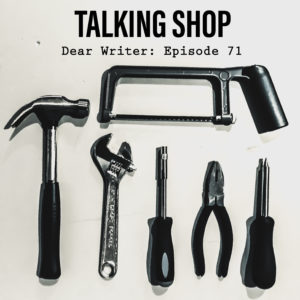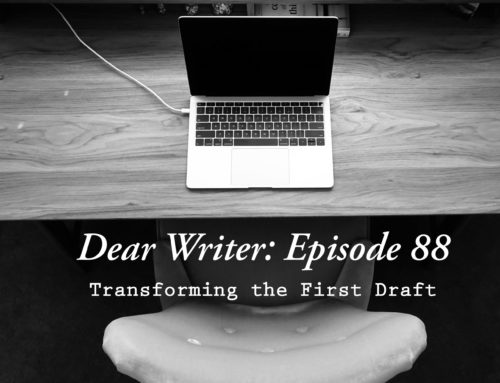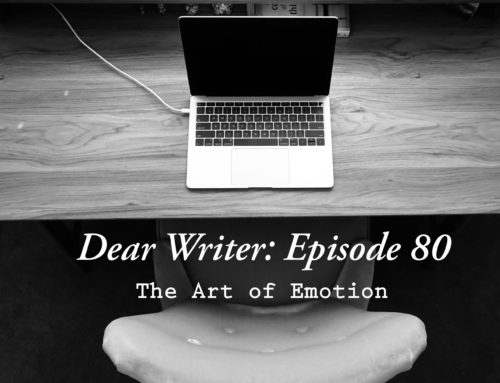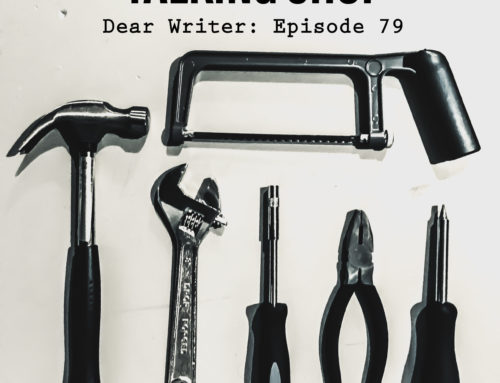Talking Shop
On this talking shop episode, we focussed on two academic articles. Sarah discussed an article titled, “‘I’ve Learned I Need to Treat My Characters Like People’: Varieties of Agency and Interaction in Writers’ Experiences of Their Characters’ Voices”, by John Foxwell, Ben Alderson-Day, Charles Fernyhough, and Angela Woods. Ashley reviewed an article called “Hideous Progeny – Examining how the failings of science and technology have informed a range of dystopian texts”, by Paul Taylor-McCartney.
You can find both articles here:
https://www.sciencedirect.com/science/article/pii/S1053810019304155
https://www.nawe.co.uk/DB/current-wip-edition-2/articles/x16-hideous-progeny-by-paul-taylor-mccartney.html

Episode Summary:
Sarah’s Tool of the Month:
‘I’ve learned I need to treat my characters like people’: Varieties of agency and interaction in writers’ experiences of their characters’ voices. By John Foxwell, Ben Alderson-Day, Charles Fernyhough and Angela Woods.
Consciousness and Cognition Vol 79 (2020) 102901
I read something quite different this week. I find myself drawn to the science side of writing articles, it’s just really interesting to me to understand how our brains work as writers! As you may guess from the title, this article was exploring how writers experience their characters, particularly whether or not they heard their characters as a voice separate to themselves and how their characters’ voices manifested, whether it was just a voice or whether they could ‘see’ their characters, and the degree to which a character’s ‘voice’ was separate from a writers own inner thoughts. Basically, their aim was to work out what writers meant when reporting their character’s talking back to them and developing a life of their own. Their second aim was to discover if there were any differences between writers who report this phenomenon (of hearing character’s voices) and those who did not. They hypothesized that, based on prior research, writers who reported hearing their characters speaking to them “would display elevated rates of vivid inner speech and hallucination proneness, and be more likely to have had an imaginary companion during childhood.”
To do this, they gave a number of writers from a sample collected at the 2014 and 2018 Edinburgh International Book Festivals and these writers participated a number of surveys that were designed with both open and closed questions about their experiences related to writing and creating their characters.
They investigated through these surveys the writers experiences of their own inner speech, agency of the characters (the degree of control writers felt they had over their characters), the type of dialogue writers engaged in, and the relationship between agency and alterity (alterity being the extent to which the characters were experienced as separate or distinct from the writer). Interestingly, agency and alterity were not linked. That is, you can experience a character wanting to ‘act’ a certain way, but still have a strong awareness and a mindset that doesn’t differentiate the character from yourself. They found that most writers experience some form of agency, but not as many experiencing alterity. Fortunately, it seems most of us are very aware that the characters are fictional, despite reporting ‘hearing’ them and experiencing them forming ‘a life of their own’ so to speak. Writers who heard character voices scored higher when testing for proneness to hallucinations, though it was noted that the few writers who had actually experienced hallucinations reported them much differently, with less awareness of whether the hallucination was real and it sounding more like a physical voice. There was no association between writers having imaginary companions in childhood. I found it a very interesting article, though unless you’re scientifically inclined like I am I’m not sure I would suggest this one to read—it was very full of jargon and though interesting probably not entirely useful. I think the biggest thing to take away from it is that if you feel your characters develop their own thoughts and feelings, and you speak to your characters, even to the extent of ‘seeing’ them or acting out conversations with them, you are not alone! There was a range of responses as you’d expect but some of the quotes really resonated with me. One person in particular said, “I LOVE it when my characters go off script. It’s one of my favourite parts of being a writer, and often these unexpected plot twists are the best of all.” This to me sums it up quite well!
Ashley’s Tool of the Month:
Hideous Progeny – Examining how the failings of science and technology have informed a range of dystopian texts. By Paul Taylor-McCartney
Writing in Practice, Volume 16, 2021, pg 210
Introduction: This paper looks at how failings in science and technology have created a number of key tropes in the dystopian genre: the inter-connectedness of memory and identity, and the use of reading and writing as forms of resistance.
The author begins by talking about the key differences between sci-fi and dystopian fiction, and identifies that tone is the distinguishing feature. In sci-fi, attitudes to science and tech are generally neutral, but in dystopian, there is a shift toward a negative attitude – usually becoming the centre piece of the whole narrative. The author highlights Mary Shelly’s Frankenstein as an important text that highlights this. Shelly consistently criticises the scientific world view as one lacking human-centric values. This novel can be thought of as a piece of bridging work – a hybrid of sci-fi and dystopian, “a terrifying world of possibilities, but with a purveying mood of desolation”. The author suggests that dystopian literature is the “hideous progeny” of sci-fi (akin to Dr Frankenstein and his monster) – “a dark, malevolent figure living in the shadow of its parent, intent on revealing the dark underside of scientific experimentation and progress.”
Discussion: the author goes through many examples, but I will outline two.
Anti-utopias: “Utopian works typically sketch a future in which technology improves the everyday life of human beings and advances civilization, (then it is equally true dystopian works) offer an opposite view.” Then there are anti-utopias “technological advances (actually set about enslaving) humans or regiment their lives a collective loss of memory and history (making) mankind easier to manipulate psychologically and ultimately lead to dehumanisation.” This highlights one of the tropes the author mentioned at the start – the link between memory and identity. These texts usually have a totalitarian government that advances its political agenda through a range of scientific and technological tools.
Acts of Resistance: This focuses on the theme of “reading and books” as a form of resistance. Think about 1984, where the ministry of truth edits the history books. Or Fahrenheit 451 where firemen are tasked with burning outlawed books, and reading alone becomes an empowered act. The protagonists in these books use reading and writing as a means of resistance to demonstrate free thought.





















Leave A Comment